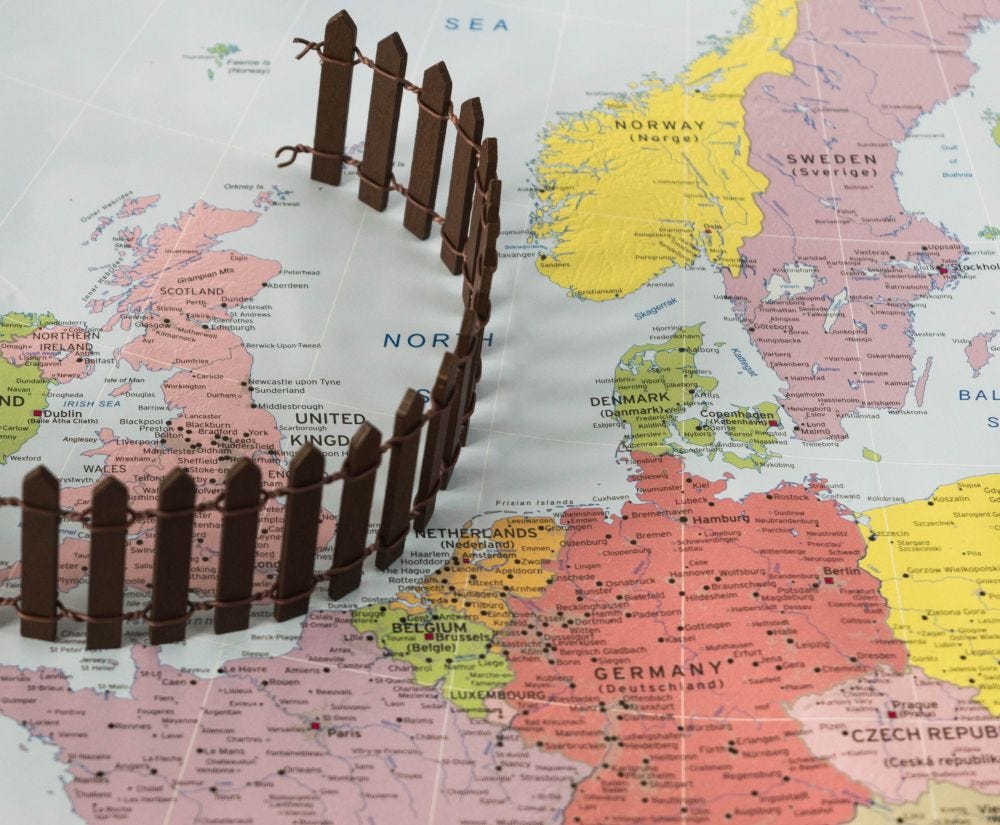After Brexit: has the British media stopped caring about Europe?
Seven years after the referendum, UK reporting of European affairs is woeful. That’s bad because there are plenty of problems in the EU we should be hearing more about, says James Holland.
In an era of increasing polarisation and continental protectionism, the gradual erosion of the British media's coverage of European news and events is a concerning development.
Despite the United Kingdom's departure from the European Union, maintaining an informed perspective on European affairs remains as crucial as ever. The dwindling attention given by the British press to European news is not only detrimental to public understanding about Britain’s role in the world, but also to the debate on the costs and benefits of the UK’s historic decision to leave the EU.
Perhaps it is understandable that editors who leaned towards remaining in the EU (and those who would lean towards rejoining the EU) are unlikely to want to cover police officers beating protesters in Paris, or EU governments using spyware to snoop on journalists or political opponents. Similarly, corruption scandals in the EU institutions, or the endless tragic deaths of migrants in the Mediterranean Sea, or the ongoing political instability in Spain or Bulgaria are stories that are more likely to be ignored by those who still pine for Brussels.
Focusing on national events is, of course, the bread and butter of British journalism, but doing so in a vacuum free of the wider European and global context can warp perceptions and entrench opinions. It is a dereliction of the media’s duty to keep citizens adequately informed. It’s also odd, given that many in Medialand like to think of themselves as well-informed global citizens, unlike the ill-educated oiks who voted to leave the EU. If Europe really does matter, why aren’t we hearing more about what goes on there?
Since Brexit, the British media has noticeably reduced its coverage of events across the Channel. In the past, European events and crises, and the subsequent national and EU responses, would receive extensive coverage: think back to the Euro-crisis or the migration crisis. Many such important topics now receive only cursory attention, barely breaking through the national psychodramas surrounding Boris and his parties, Philip Schofield or the Sussexes. This limited reporting deprives citizens of information critical to meaningful discussion and hobbles their ability to hold the UK government accountable for the significant decisions that it takes.
The British media's dwindling interest in European elections and politics has also harmed British readers’ understanding about the political landscape across Europe. Elections in EU member states once received substantial coverage, but are now often relegated to just brief mentions of the result completely devoid of any deeper commentary or analysis. As a result, the British public is uninformed about how policy debates that mirror those in the UK are developing in similar European countries. This neglect hampers the ability to form a comprehensive perspective, as our ability to compare helps us cut through the spin and hyperbole endemic to national political debates.
Support the work of the Academy of Ideas by becoming a paid subscriber to our Substack - and get discounted tickets and free copies of our Letters on Liberty pamphlets, too.
Another reason to not downplay what is happening on the European continent is the significant role European nations play in global affairs, where they regularly offer unique and valuable perspectives on a range of issues, including democracy, climate change, international conflicts and human rights. By overlooking these diverse interpretations of global events, the media deprives the British public of an opportunity to develop nuanced understandings of complex global challenges.
The diminishing coverage of European news by the British press also has implications for both British citizens living abroad and European residents in the UK. Expatriate communities in Europe, who rely on British media for news and updates, can find themselves disconnected from events in their host countries. Similarly, European residents in the UK face a dearth of coverage on issues affecting the lives of their families and friends back in their country of birth, as well as the false impression that people in Britain do not care about their European neighbours. The neglect of these communities can perpetuate a sense of alienation and exacerbate divisions between different groups within society.
A renewed commitment from the UK media to cover European news and events can foster more informed, inclusive and globally engaged citizens.
James Holland is a political consultant and commentator on European Affairs who has worked in and around the EU institutions for over 15 years.
Follow James on Twitter: @james7holland

